#alexander belyaev
Explore tagged Tumblr posts
Text

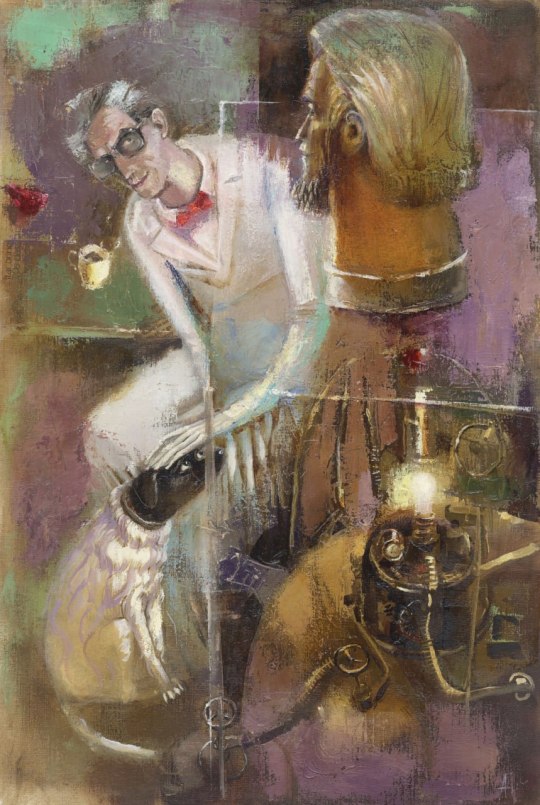
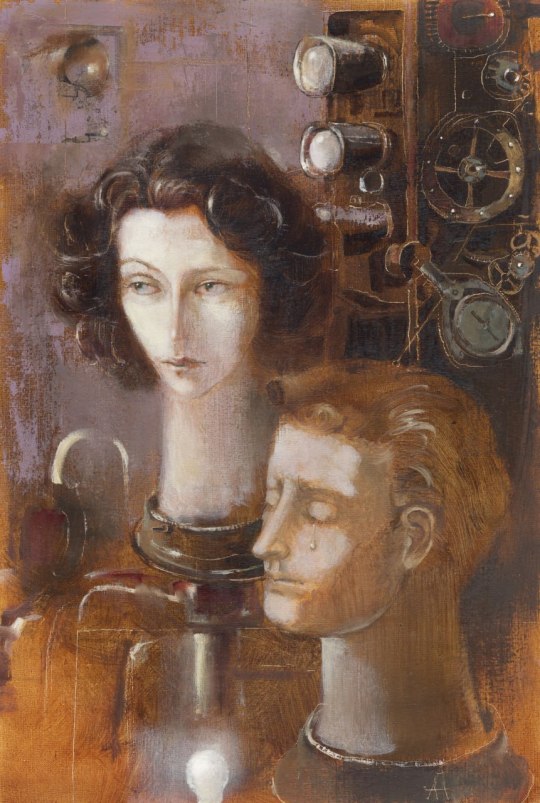
Anna Protsenko’s illustrations for Alexander Belyaev’s Professor Dowell’s Head.
21 notes
·
View notes
Text
I am finally rereading Amphibian Man by Alexander Belyaev after like a decade and my first book boyfriend Ichthyander finally made an appearance :’)

Hello my pookie I missed you so much 😭
#he was such a softboi#i think the politics in this book is a bit of a mess but this time i am just skimming through#all i care about is my boi because he’s sweet and vulnerable and not problematic#and tragic#amphibian man#ichthyander#alexander belyaev
2 notes
·
View notes
Text
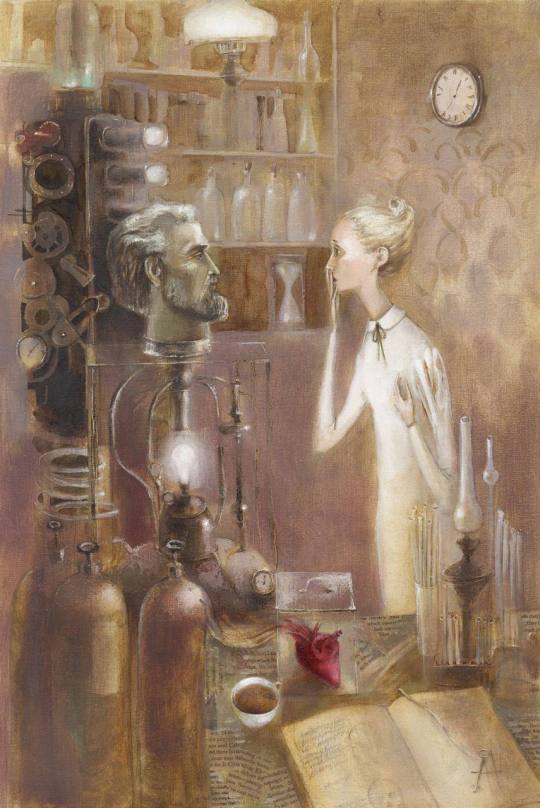
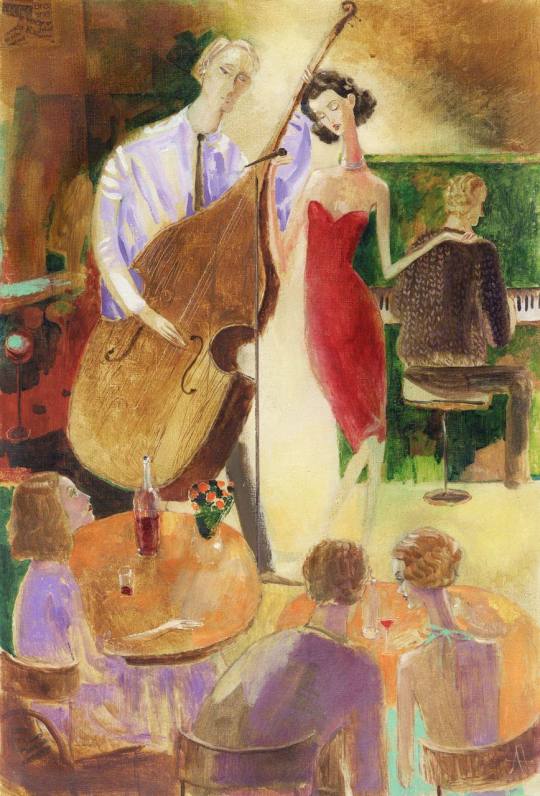
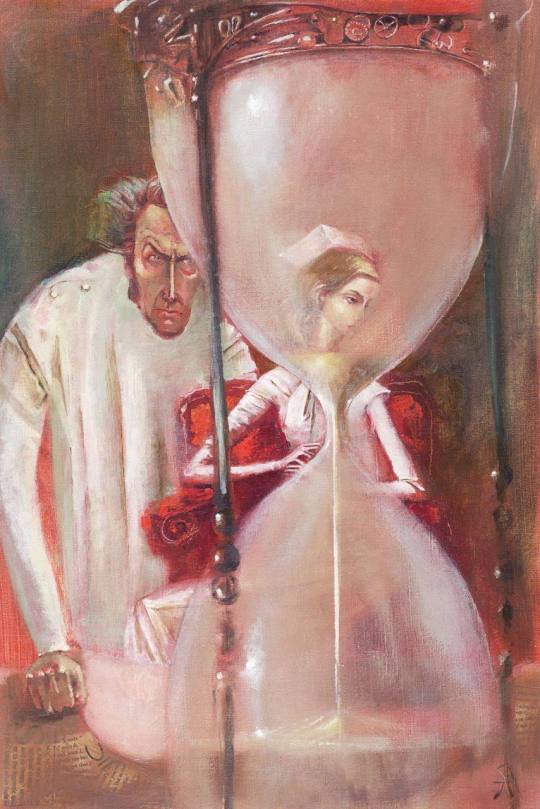
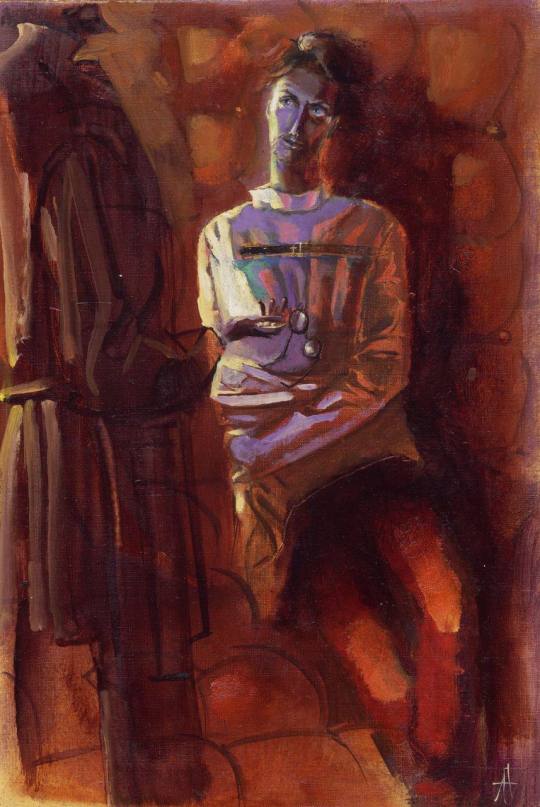
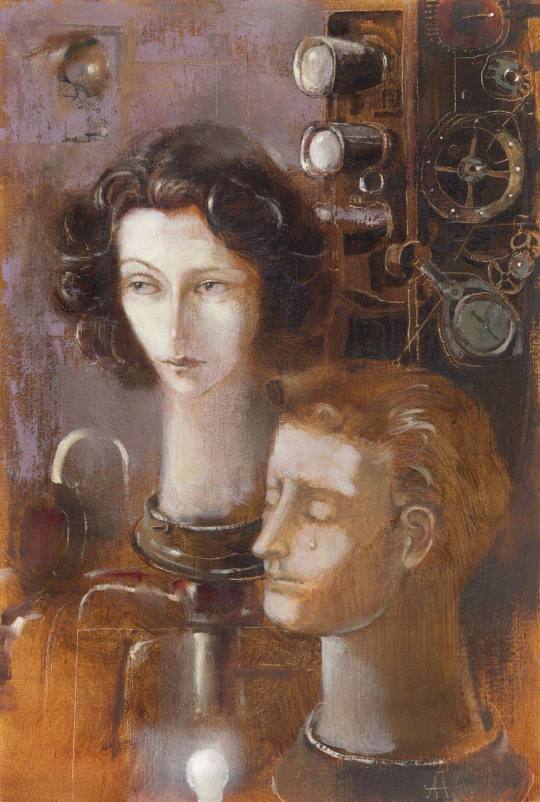
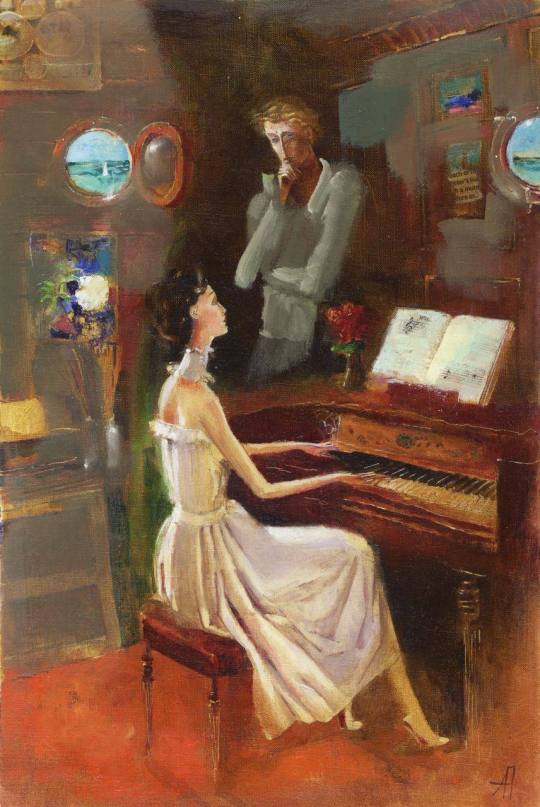
Illustrations for Professor Dowell's Head (1925), a science fiction and horror story by Alexander Belyaev
37 notes
·
View notes
Text
aaaaaaa I've finally finished a book after SO. LONG.
#i quitted reading at 11 y.o or something#i hardly finish any book since then#but a few weeks ago i went to a fair#one of the books had a rlly nice cover#i couldnt take my eyes off of it#so i caved and bought it#it's a fun read#btw it's Amphibian Man by Alexander Belyaev#feeling fantastic rn
1 note
·
View note
Note
I've read every single book I can find on the Romanovs but would like some help finding more books. I just found your blog and I love it!
Hello, thanks for your question. Here are some of my favourite more obscure books for those of you who have read all you can find and raided the libraries!
The Romanovs Under House Arrest: From the 1917 Diary of a Palace Priest edited by Marilyn Pfeifer Swezey
A short, but interesting and beautifully illustrated book that translated the diaries of Archpriest Afanasy Belyaev into English. It gives an insightful look into the last few months and weeks the Romanovs spent at the Alexander Palace and their faith.
LUNCH ON THE BALCONY: Recipes from the table of Russia’s last imperial family by Helen Azar
Can you tell I'm hungry right now? This book has some nice information about the Romanov's food, showing menus they used, letters and diary entries referencing food, and recipes used in the imperial kitchen that you can try at home.
Last Years of the Court at Tsarskoe Selo Volumes I and II by Count Alexander Spiridovich, edited and translated by Katherine Alexandra Hines
A lengthy look at the Count's role as a member of court and security duties. These volumes have some interesting passages about OTMA, though they focus more on the political activities of the Romanovs.
The Forgotten Tutor: John Epps and the Romanovs by John Epps and Dr. Gabriella Land
John Epps, an English tutor to the imperial children, remains a somewhat elusive figure in literature about the Romanovs, with very little information available about him in comparison to fellow tutors Gilliard and Gibbes. I have personally found it very difficult trying to track down this book as it was published a decade ago and seems to have only had one limited print run. The extracts that I have read have been very interesting. If you're interested in OTMA's childhood and education, this book is perfect for you - but good luck finding it! :(
A Few Years Before the Catastrophe: The memoirs of Sofia Ivanovna Tyutcheva edited and translated by George Hawkins
A very short but interesting read directly from the recollections of Sofia Ivanovna Tyutcheva who looked after the children. It gives a short but enlightening look at how things were run in the nursery.
When Miss Emmie Was in Russia: English Governesses Before, During and After the October Revolution by Harvey Pitcher
This book has a more sweeping view of Russian nannies in general, but has some nice tidbits of information about OTMA's nannies, such as Margaret Eagar (though she was Irish, not English!). If you enjoyed Charlotte Zeepvat's book on royal nannies that has some great info and sources on OTMA, this is a good follow up read.
Step-daughter of Imperial Russia by Natalia Mamontova Majolier
Recollections from Natalia "Tata", Grand Duke Mikhail Alexandrovich's beloved stepdaughter. Lots of information about growing up with Mikhail and experiencing the Revolution.
Russia, My Native Land: A U.S. Engineer Reminisces and Looks at the Present by Gregory Tschebotarioff (Chebotaryov)
Written by the son of Grand Duchess Olga and Tatiana Nikolaevna's fellow nurse and friend, Valentina Ivanovna Chebotaryova, this memoir gives a greater picture of Valentina's life by including extracts of her diary. It also has details about Gregory's experience serving in WWI.
Anastasia's Sisters: Their Diaries, Letters and Memories edited by Raegan Baker and translated by Catherine Hamel
A short book with extracts from Grand Duchesses Olga, Tatiana, and Maria's writings. I always find it interesting to read different translations of the same sources and find various changes made my each translator. As always, translations rely on the translator's discretion and interpretations.
The Many Deaths of Tsar Nicholas II by Wendy Slater
This book is an academic, somewhat cold and clinical, look at the deaths of the Romanov family. The compilation of scientific analysis (though this was published in 2007, so not accurate to recent discoveries) during the middle sections is the best part of this book, as the fictionalised narrative at the start doesn't appeal to me and the analysis during the latter stages veers off focus.
The Jewel Album of Tsar Nicholas II and a Collection of Private Photographs of the Russian Imperial Family by Alexander von Solodkoff
A lovely illustrated book - if you can afford it!! This regularly sells for over $100, but is very detailed and beautiful, including high-quality full-colour copies of Nicholas' "Jewel Album" with his annotations and marvellous drawings.
My Father by Maria Rasputina
For fans of the infamous Rasputin, this glimpse into how daughter Maria perceived her father is an interesting read. Rasputin is one of the most contentious and well-researched figures in this area of history, and reading his daughter's experiences and how she viewed his healing of Tsarevich Alexei is a unique viewpoint.
The Emperor Nicholas II: As I Knew Him by John Hanbury-Williams
Major-General Sir John Hanbury-Williams provides an intimate look at life during WWI in Russia, from the perspective of his role as an English representative at Stavka. Some interesting observations about Nicholas and Alexei.
Lost Tales: Stories for the Tsar's Children by Gleb Botkin
Gleb Botkin, only seventeen, composed and illustrated this series of tales (collected here as one book) for the imperial children during their imprisonment at Tobolsk. A lovely look into Gleb's artistic skills, and the interesting parallels between his animal characters and the revolution. Not necessarily a history book, but an interesting insight into life at Tobolsk.
In case I missed any, if you search #q and #answered on my blog it will come up with a list of previous questions, a lot of which relate to reading recommendations, so you might find some more suggestions there.
For information of a compilation of primary source writings written by the Romanovs that have been translated into English, see here
Happy reading!
26 notes
·
View notes
Text
Oh, greetings!
My name is Glyc(k)eria, but you can call me by various shortened versions of it. I’m from Kazakhstan, but my nationality is Ingush, and English is not my first language.
I can speak Russian, English, Chinese, and a little bit of Ingush and Kazakh. I’m a minor, and my birthday is on February 14.
This blog is for my thoughts and theories about fandoms, but I also have this blog (@glykeria314) because I’m an artist as well.
Fandoms: Bungou Stray Dogs, LEGO Monkie Kid, Animator vs. Animation (Minecraft), 13(54) Cards, CriminArt, Undertale, Underverse, The Nameless City, and others.
I’m a huge fan of rays (the sea creatures).
My favorite artist is the Czech illustrator Alphonse Mucha.
My favorite writers are Mark Twain, Ryūnosuke Akutagawa, Edogawa Ranpo, Anton Pavlovich Chekhov, Alexander Sergeyevich Pushkin, and Alexander Romanovich Belyaev.
I love physics and enjoy digging into small details.
I love rock music, both heavy and light, relaxed styles. Some of my favorite artists are Flëur, Korol i Shut, Kino, Zemfira, Mac DeMarco, GRANDRODEO, Mitski, Molchat Doma, SadSvit, and Will Wood (and The Tapeworms).
I love the book We, The Lord of the World, Flowers for Algernon, The House in Which…, Entertaining Physics/Astronomy, Living Mathematics, and the works of Nikolai Vasilyevich Gogol.
My social medias:
TikTok : @glyceria_314
Telegram channel
LOFTER: @glyceria314
小红书
Bluesky
Pixiv










2 notes
·
View notes
Text
I mustn't say who I am...
youtube
The film is based on the novel of the same name by Alexander Belyaev and tells the story of a young man named Ichthyander who has been surgically altered to have gills, allowing him to breathe underwater. Ichthyander falls in love with a beautiful girl named Gutiere, but their relationship is threatened by various obstacles, including a villainous gangster who wants to exploit Ichthyander's abilities for his own gain.
It is worth noting that the film was shot primarily in Crimea, a peninsula located on the northern coast of the Black Sea. The film crew took advantage of the picturesque landscapes and coastal settings of Crimea to bring the underwater world of Ichthyander to life. The stunning underwater scenes were shot in the Black Sea itself, adding to the authenticity and beauty of the film's visuals. The natural beauty of Crimea provided a perfect backdrop for the fantastical story of "Amphibian Man."
🎞film: Amphibian Man (1962) 🎬director: Alexander Belyaev 🟣🟣🟣🟣⚪️
2 notes
·
View notes
Text
The Amphibian Man - Book Review
Firstly, I would like to thank @anitaofsamothrace for introducing me to this wonderful film and book, and this post would not be possible without her help.
"Amphibian Man" (Человек-амфибия) is a captivating science fiction adventure novel penned by the esteemed Soviet Russian writer, Alexander Belyaev. This imaginative work was first introduced to the world in 1928, capturing the hearts and minds of readers with its unique blend of scientific exploration and fantastical storytelling.
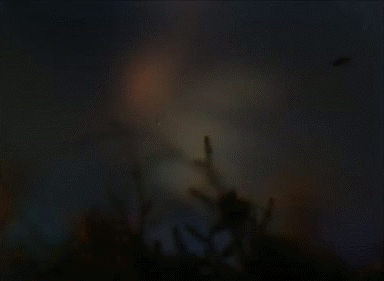
Synopsis
"Amphibian Man" (original title Человек-амфибия), a captivating Russian science fiction novel written by Alexander Beliaev in 1928, weaves a tale of scientific ingenuity, human transformation, and societal reflection.
The narrative revolves around Salvator, an Argentinian doctor distinguished not only by his medical prowess but also by his daring approach to science. When faced with the critical condition of his son, Ichthyander, Salvator embarks on a life-saving transplant, forever altering the course of Ichthyander's existence.
While the experiment proves successful, granting Ichthyander a new lease on life, it comes at the cost of restricting his interactions with the world beyond the ocean's embrace. Subsequently, Ichthyander finds himself compelled to navigate the challenges of life submerged, raising poignant questions about identity and adaptation.
The plot takes an intriguing turn with the introduction of Pedro Surita, a local pearl gatherer who discovers Ichthyander's extraordinary diving abilities. Pedro's attempt to exploit the young man's superhuman skills adds an element of tension and moral complexity to the narrative.
Beyond the individual struggle of Ichthyander, "Amphibian Man" delves into broader socio-political themes. The story subtly weaves in socialist ideas, offering a commentary on the pursuit of equality and the improvement of living conditions for the world's impoverished populations. As the characters navigate their personal challenges, the novel invites readers to reflect on the interconnectedness of scientific advancement, human nature, and societal structures.
"Amphibian Man" stands as a timeless exploration of the human condition, seamlessly blending elements of science fiction, morality, and social critique in a narrative that continues to captivate readers across generations.

Writing Style
The writing style of "Amphibian Man" is characterized by its vivid and elaborate descriptions, transporting the reader into a world rich with imagery. While the level of detail might be perceived as excessive by some, it serves the purpose of allowing readers to immerse themselves in the environments depicted. The author, Alexander Beliaev, employs a skillful use of language to vividly portray not only the physical landscapes but also the nuanced expressions and actions of the characters.
Despite the descriptive nature of the prose, some readers may find that the pacing occasionally slows down, leading to moments of potential monotony. However, this deliberate choice in writing style aims to offer a comprehensive and immersive experience, allowing readers to envision the intricate details of the narrative. The tropical and mystical ambiance of the Argentine coast serves as an enchanting backdrop, enhancing the overall reading experience and adding a layer of atmospheric charm to the storytelling.
One notable strength of the novel lies in its ability to address enduring and relevant themes. The narrative touches on topics that remain pertinent in contemporary society, fostering a connection between the fictional world and the reader's own reality. The exploration of these themes adds depth to the storyline, elevating "Amphibian Man" beyond a mere tale of fantastical transformation.
The characters in the novel are portrayed with charisma, making them relatable and engaging for the reader. The storyline's magnetic pull leaves the reader eagerly anticipating each unfolding chapter, creating a desire to delve deeper into the narrative. This captivating quality contributes to the novel's status as a classic, as it manages to sustain the reader's interest throughout.
Without divulging spoilers, the story skillfully weaves a captivating narrative that elicits a range of emotions. While there are moments of humor that provide a welcome respite, the narrative also concludes with a poignant blend of melancholy and joy. This emotional resonance lingers with the reader, leaving a lasting impression and prompting reflection on the intricacies of the human experience.
In essence, "Amphibian Man" is not merely a book but a literary journey that combines descriptive prowess, enduring themes, charismatic characters, and emotional depth. It is a classic that transcends time, inviting readers to explore its pages and, as an added dimension, experience the tale on the cinematic screen. The novel's ability to evoke a spectrum of emotions ensures its place as a timeless and multidimensional work of literature.
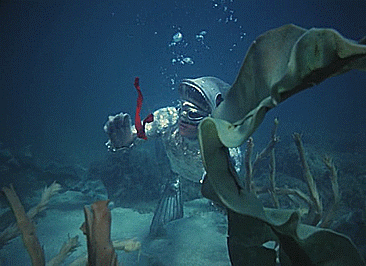
Reviews about the movie
The cinematic adaptation of "Amphibian Man" has been praised for its visually stunning aesthetics and its ability to evoke genuine emotion. The film's cool aesthetic captures the attention of the audience, creating a visually engaging experience. However, despite its visual appeal and emotional resonance, some critics argue that the book delves into a broader spectrum of topics with greater depth.
The movie primarily focuses on social and interpersonal problems, as well as personal tragedies, offering a glimpse into the complexities of the human experience. While the film addresses these themes, some viewers feel that the book handles these aspects with a more nuanced and profound approach, exploring the intricacies of the narrative in a more comprehensive manner.
During its initial release, the film received mixed reviews from critics. The discrepancy between critical reception and public popularity can be attributed to the prevailing cinematic norms of the time. Critics, often rooted in traditional values, were less receptive to the film's departure from Soviet values in both character portrayal and storytelling. The clash between the old-school critics' expectations and the film's innovative approach contributed to a divide in critical opinions.
Despite the lukewarm reception from critics, the film gained immense popularity among audiences. Its success can be attributed to its ability to resonate with viewers on a more emotional and personal level. While the characters may not exude extreme charisma or flamboyance, they are portrayed as authentic individuals with a balance of virtues and flaws. This realism in character portrayal allows audiences to connect with the story on a more human level.
Critics, however, noted that the characters in the film appeared shallower in comparison to their literary counterparts. The film's emphasis on the action genre received mixed reviews, with some feeling that it lacked the depth present in the book. This divergence in critical assessments underscores the subjective nature of artistic interpretation.
Despite the criticisms, the movie has stood the test of time and is now considered a classic. It holds a special place in the hearts of those who watched it, with fond memories lingering among audiences. The enduring popularity of the film, in contrast to its initial critical reception, highlights the dynamic relationship between cinematic innovation, audience reception, and the evolving standards of storytelling. "Amphibian Man" remains a cinematic gem, cherished by its audience for its unique blend of visual appeal, emotional depth, and its status as a classic in the realm of film adaptations.
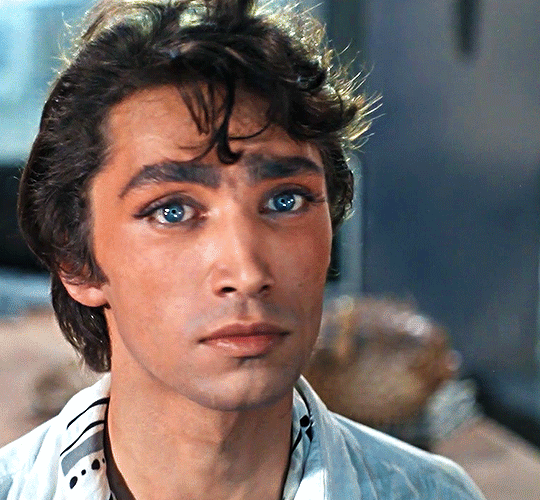
Curiosities about the movie
"Amphibian Man" has garnered international recognition, with acclaimed Hollywood filmmaker Quentin Tarantino expressing it as his favorite Russian movie. This endorsement from a prominent figure in the film industry underscores the global appeal and impact of the Russian cinematic gem.
Interestingly, the movie has been at the center of controversy regarding its influence on the 2017 Hollywood production "The Shape of Water." Accusations of plagiarism have arisen due to the striking similarities between the two films. Both share a common narrative thread, featuring a protagonist with an amphibious nature, a Soviet connection, and a setting in the 1960s. The parallels in plot and thematic elements have sparked debates among film enthusiasts about potential inspirations or influences.
While such accusations may ignite discussions about artistic originality and creative inspiration, they also highlight the enduring relevance of "Amphibian Man" as a source of inspiration for contemporary filmmakers. The film's impact has transcended geographical boundaries, leaving an indelible mark on the cinematic landscape and influencing works beyond its cultural origins.
As debates continue about the similarities between "Amphibian Man" and "The Shape of Water," it serves as a testament to the enduring legacy of the Russian classic and its capacity to resonate with filmmakers across different cultures and generations. The movie's cultural significance and its ability to spark discussions in contemporary cinema contribute to its status as a cinematic treasure with a lasting impact.

Personal opinion
It was a truly pleasant experience delving into the pages of this book and immersing myself in the world of this film. As my initial encounters with Russian/Soviet literature and cinema, they ignited a curiosity that compels me to explore more works of a similar nature.
Thank you for taking the time to explore my thoughts on “The Amphibian Man” ~
#человек-амфибия#the amphibian man#book review#russian literature#soviet literature#classic literature#books#booklr#russian cinema#soviet cinema#movie review#book recommendations
4 notes
·
View notes
Text
There must be something about me, I suppose, until I'll come up with more creative description in my bio xd
So you can call me Rose (it's not my real name tbh but the word "rose" — as a flower — is the part of its meaning which I've always adored). I'm now at the first step of my way to become a scientist. I'm a stem freshman at the university (not in English-speaking country so my grammar can be bad, sorry), getting a bsc in general biology. I've been studying philology before (don't ask lol) therefore I'm a little bit older than 18. I think I might say I'm in my mid-twenties if age is important for someone. For me it's not, I strongly believe you are never late to go for your dream.
I like, obviously, biology and all other natural sciences (especially physics, it's incredible!!), some branches of history (Tudor's England, late Middle Ages in Portugal, 18th century in Russia, 19th century in Germany and history of science in all of the world ofc), art landscapes. I also love sci-fi literature and shows, I'm a huge fan of Card's Ender cycle, DW and SCP Foundation project!! Can talk about it for hours. When I studied philology I even wanted to dedicate my bachelor thesis to soviet sci-fi writer Alexander Belyaev but that was affairs of bygone days (although I still love and reread his works).
Occasionally I fall in love with certain fantasy work (HP, Cassandra Clare's books, ASOIAF universe etc.) however it's not my cup of tea in general. I'm considering myself being in "House of the Dragon" fandom but I don't think I will talk much about it here, its awful writing broke my heart and insulted my common sense totally.....
As for games, my favourite ones are Cells (mobile game about evolution), Universe Sandbox (simulator of processes in space), Detroit: Become Human and Atomic Heart.
I think that's all I could tell at this point, the post is already too long xd. Well, now I'm choosing a certain field of biology to specialise in. I loved botany with all my heart since I was a child but some area of zoology accidentally captivated me few weeks ago. There would be updates if I will establish this matter firmly.
I'll speak plainly, I'm quite lonely and have no close friends irl so feel free to write me about anything if you want to!! There's nothing I love more than talking about stuff. :D
0 notes
Photo
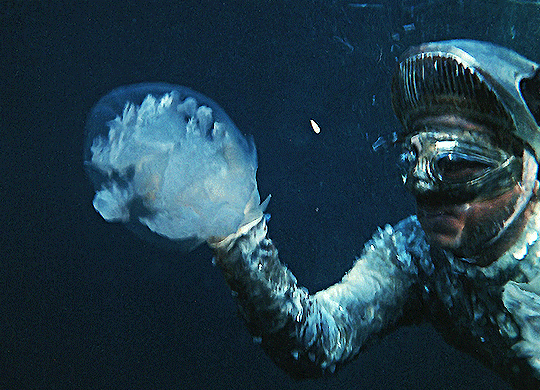
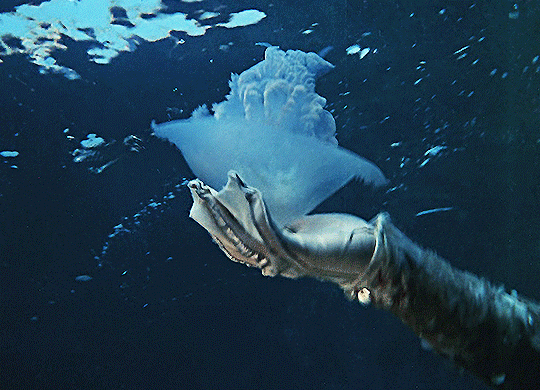
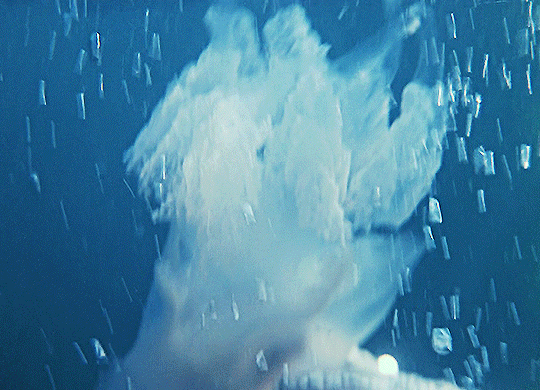
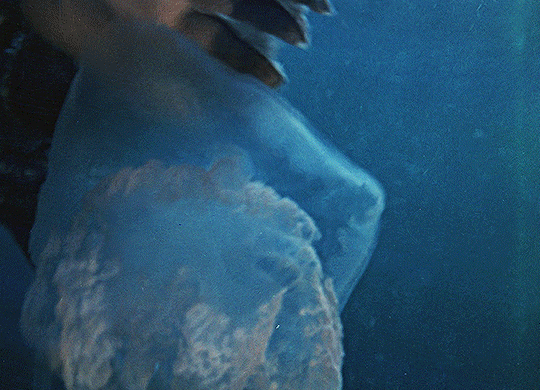

Amphibian Man (1961)
#amphibian man#medusa#filmedit#scifiedit#Ichthyander#alexander belyaev#60s#60s movies#PastPresentFutureedit
36 notes
·
View notes
Text
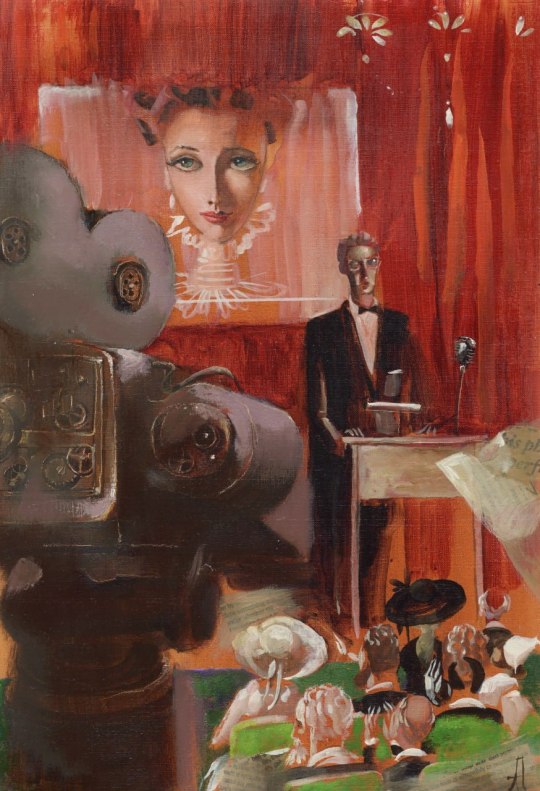
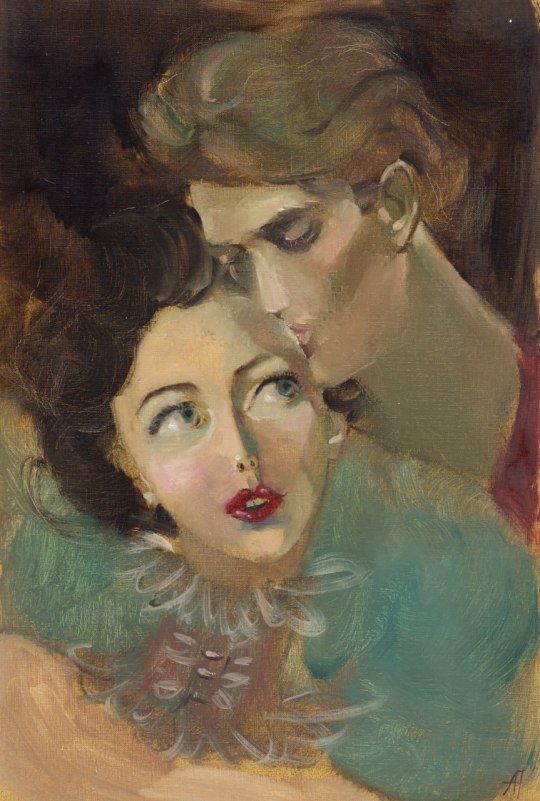

Anna Protsenko's illustrations for Alexander Belyaev's Professor Dowell's Head.
10 notes
·
View notes
Text
"The first fish among men, the first man among fish..." 🐠

A messy spread for Ichthyander, my first platonic crush.
The movie is cute and all, but go read the book. Like, now. It's got similar, if not the same sense of queer neurodivergent longing y'all found in The Little Mermaid.
#человек-амфибия#человек амфибия#amphibian man#александр беляев#alexander belyaev#junk journal#scrapbooking#science fiction#sea life#the amphibian#traditional art
58 notes
·
View notes
Photo





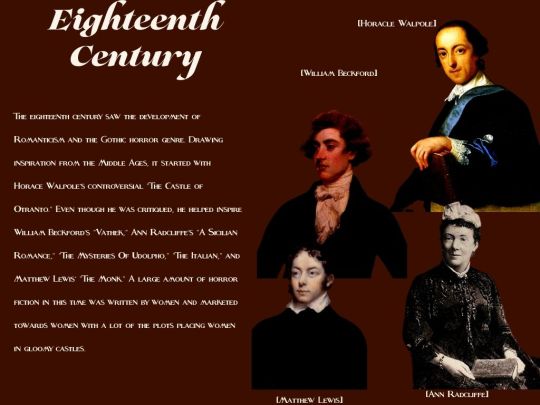
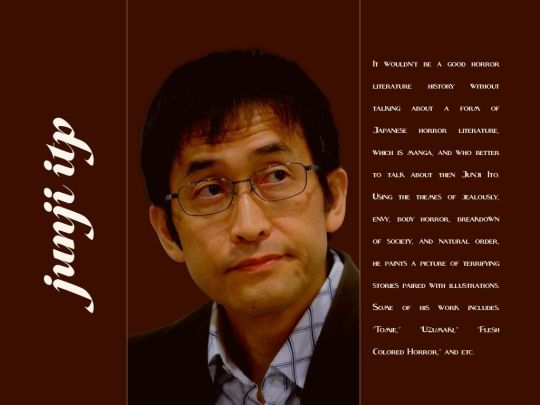
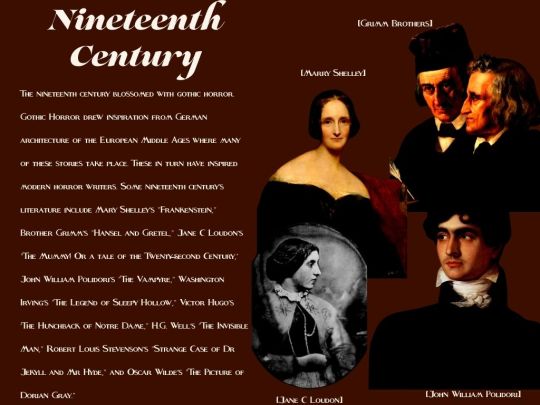
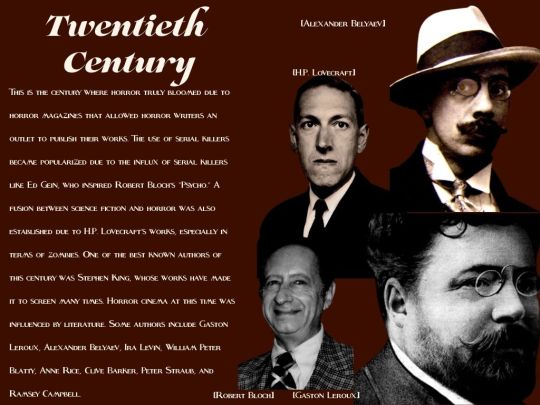
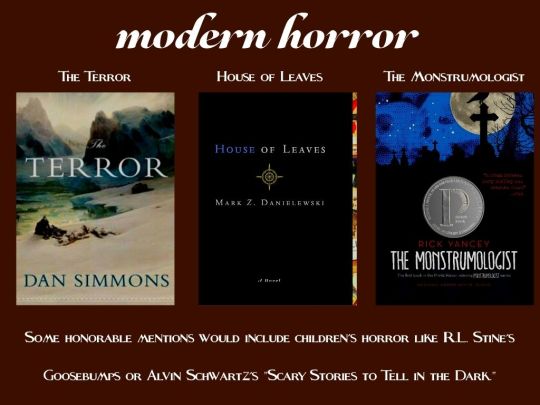
literature | history | horror fiction
→ click on to read
#literature#history#horror#horror fiction#vlad the impaler#euripides#plutarch#pliny the younger#marie de france#horacle walpole#william beckford#ann radcliffe#matthew lewis#mary shelley#grimm brothers#jane c loudon#john william polidori#alexander belyaev#h.p. lovecraft#robert bloch#stephen king#gaston leroux#r.l. stine#alvin schwartz#junji ito#myedit#mine#aesthetic#graphics
296 notes
·
View notes
Text
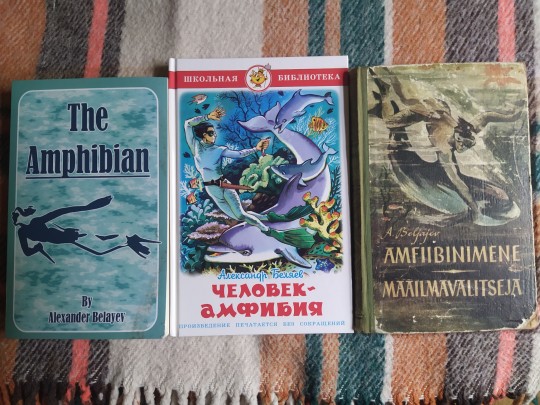
Behold! Read! Envy!
I am a fan of Amphibian Man (the book) in 2022!
#alexander belyaev#amphibian man#the amphibian#человек амфибия#александр беляев#человек-амфибия#booklr#booksbooksbooks#science fiction#sci fi books
8 notes
·
View notes
Photo



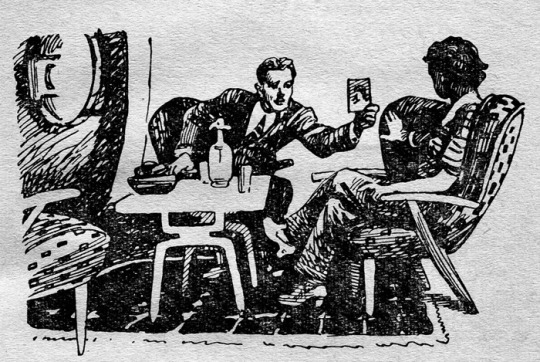
Oleksandr Dovgal`s Illustrations to Professor Dowell's Head by Alexander Belyaev, 1957
#Oleksandr Dovgal#Professor Dowell's Head#Alexander Belyaev#Ukrainian#Ukrainian art#ukrainian graphic#book illustration#vintage book illustrations#vintage scifi
24 notes
·
View notes
Text
Context: I've finished "The Picture of Dorian Gray" like 5 days ago, and started "Amphibian Man" today

Evil bitch vs. Sea-nnamon roll
(Please read both books, one is interesting because of the character's moral decay, and the other is fun, a way to cleanse from the first book)
[Image ID: A meme of Harrison Ford saying "Baby boy. Baby." in the upper half towards Ichthyander from a novel "Amphibian Man" by Alexander Belyaev. In the lower half, he is saying "Evil." towards Dorian Gray from a novel "The Picture of Dorian Gray" by Oscar Wilde. End ID]
#мем#литературный мем#литературные мемы#александр беляев#человек-амфибия#ихтиандр#оскар уайльд#портрет дориана грея#дориан грей#meme#literature memes#alexander belyaev#amphibian man#ichthyander#oscar wilde#the picture of dorian gray#dorian gray#baby boy. baby. evil meme#harrison ford#random.dusty#am i wrong
5 notes
·
View notes